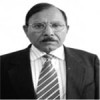It is rightly said that press (media) and a nation rise and fall together. The media as a fourth pillar of the state and representing the society is supposed to maintain its pluralistic hue wedded to the cause of defending the social values, human liberties and freedoms that are indispensable for the socio-economic development of the society besides playing its educative role on issues of crucial national interest in an independent and impartial manner. The media is also required to promote and defend democracy as its own freedom is reinforced in a democratic set up. This is how it can play an effective role in the rise of a nation.
Judged on the touchstone of the foregoing, the media landscape in Pakistan presents a very dismal picture. While it zealously tends to maintain and protect its freedom, it is not showing the sense of social responsibility that goes with the freedom of expression. The media like the political polarization in the country has also become highly polarized. The conduct of the media during the present political turmoil in the country and run up to the elections clearly manifests that phenomenon. Some channels have been persistently engaged in tarnishing the image of the leadership of a particular party and dishing out unauthentic information about alleged corruption and some have been promoting the narrative of the vested interests. Mutual rivalries between channels and media groups going beyond fair competition in the market of ideas and their descending into the realm of degrading dispositions towards each other are also a contributing factor to the overall irresponsible behavior of the media. The new entrant to the media mix, the social media, has played a very dirty role in spreading falsehood, fabricated news to malign political opponents and even denigrating the state institutions. Reportedly the government has identified 500 social media accounts which were engaged in trolling the judges of the apex court, particularly the CJ. The social media is also being used to mislead the youth in regards to national issues. It has gone on un-checked with all the negative consequences.
Political parties enjoying level playing field, says PM The constitutional provision for freedom of expression and media is in consonance with the internationally recognized role of the states to regulate all the entities within its territorial limits in such a way that they contribute to the strengthening of the state, its ideological moorings, national interests and the moral values of the society with a view to promote peace and tranquility in the country. In fact there is no concept of unbridled media freedom in the world and rightly so. The Social Responsibility Theory propounded by Dr. Robert Maynard Hutchison, Vice Chancellor of Chicago University who headed Hutchison Commission formed in US in 1942 to make recommendations on the freedom of expression and media’s obligations towards the society--- in the backdrop of growing calls by the US public for government intervention to check the indiscretions of the media and attempts by the media to avoid incisive government regulation--- remarked “freedom comes with responsibility:
Saad Rafique has an edge over Latif Khosa The report of the Commission submitted in 1947, is regarded as the Magna Carte of the modern concept of freedom of expression and media’s responsibilities towards the society. It unequivocally emphasized the need for media to provide accurate, truthful and comprehensive account of events, act as a forum for exchange of comment and criticism, present and clarify goals and values of the society and make sure that it projects a representative picture of the constituent groups of the society. The media can defend its freedom and play its defined role only when it acts with responsibility. Nevertheless it is an irrefutable reality that the government has a constitutional duty to ensure that all the entities operating with the boundaries of the state, including media do not cross the Rubican.
One would like the media to self-regulate itself in a manner that while playing its role as a watch-dog against the government, it also serves the cause of the society and the state by maintaining its pluralistic disposition. In the run-up to elections, post-election scenario it must exhibit greater sense of social responsibility instead of playing a partisan role and being part of propaganda of the vested interests, specific political groups and parties. It needs to present realistic and truthful picture of the unfolding scenario to the public. The media owes it to the nation and itself. The incumbent government will also have to make sure that the media enjoys freedom of expression within the parameters of the internationally recognized ethical and professional codes of conduct and the social media is also regulated properly.
Dense foggy conditions continue to prevail in Punjab, KP, upper Sindh: PMD
Malik Muhammad Ashraf
The writer is a freelance columnist. He can be reached at ashpak10@gmail.com





















 Toi Staff
Toi Staff Gideon Levy
Gideon Levy Belen Fernandez
Belen Fernandez Andrew Mitrovica
Andrew Mitrovica Mort Laitner
Mort Laitner Rami G Khouri
Rami G Khouri Ali Fathollah-Nejad
Ali Fathollah-Nejad Nikkei Editorial
Nikkei Editorial
